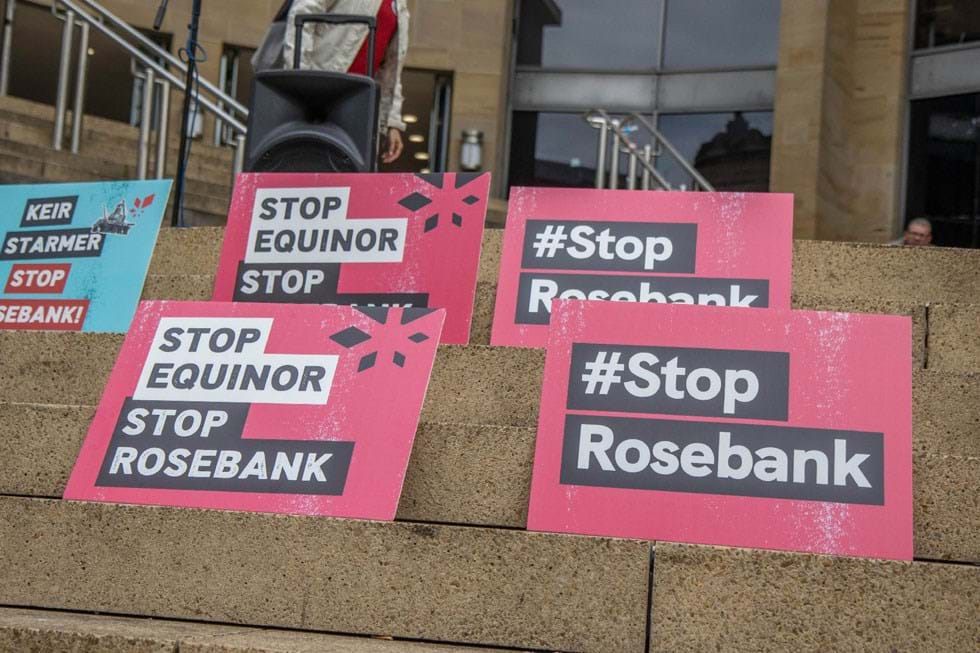Rosebank’s climate cost: 250m t of CO2 and counting
Legal challenge forces reassessment, with public consultation open ahead of final decision
HYDROCARBONS extracted from the proposed Rosebank oil and gas field in Scotland are projected to generate up to 250m tCO2e of emissions over 25 years, according to an assessment by the field’s operator.
The downstream emissions are on top of the 5.7m tCO2e already predicted from production and extraction activities at the planned floating production, storage and offloading vessel (FPSO) over Rosebank’s expected 25-year lifetime.
Developer Equinor’s latest calculation is based on “optimistic” oil production estimates that would see the FPSO producing up to 73,000 boe/d. The 249m t worth of expected emissions also assumes 100% of sold hydrocarbons are burned by end users, an overestimate given that “a significant share” is expected to be used as feedstock for petrochemicals.
Around 16% of downstream emissions are expected to come from “well-to-tank” operations, such as refining and transport. Between 102m and 209m tCO2e are predicted from end-use combustion. Rosebank’s primary product will be oil, accounting for 90% of downstream emissions, the rest from natural gas extracted from the field.

Rosebank was approved by the UK government in 2023 based on an initial assessment that the project would contribute 5.7m tCO2e over its lifetime, mostly from burning fuel gas to power the FPSO. However, a Scottish court ruled in January this year that approval was unlawful without an assessment of downstream emissions from combustion of oil and gas produced at Rosebank.
A public consultation is now open until 20 November, after which UK energy secretary Ed Miliband will make a final decision on whether to greenlight Rosebank.
Paul Morozzo, a senior campaigner with Greenpeace UK which brought the legal challenge against Rosebank with fellow campaign group Uplift, said the figures were a “brazen admission” of the “vast climate damage that would be caused” by the development.
Tessa Khan, executive director of Uplift said: “The government must stick to its word and invest in clean energy, which is powering growth, and stop propping up an industry that is now only viable with massive state support”. Khan urged the government to “do the right thing and reject Rosebank”.
Equinor says that the emissions are “not significant when viewed in the context of international climate commitments”. The company’s assessment is based on the Intergovernmental Panel on Climate Change’s (IPCC) emissions reduction targets to limit global warming to 1.5C, to which Rosebank’s downstream emissions would contribute no more than 0.06% between 2027 and 2050.
Recent Editions
Catch up on the latest news, views and jobs from The Chemical Engineer. Below are the four latest issues. View a wider selection of the archive from within the Magazine section of this site.




